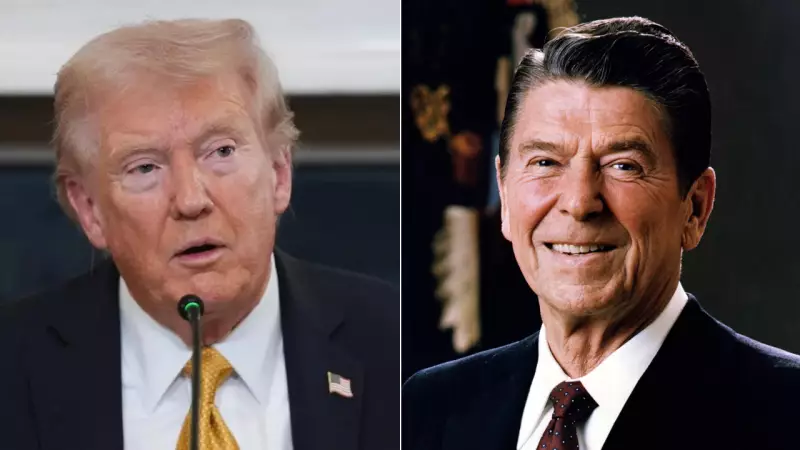
In a striking historical parallel that reveals deep divisions within Republican economic philosophy, former President Ronald Reagan's strong opposition to tariffs stands in stark contrast to Donald Trump's current protectionist agenda.
The Gipper's Clear Stance: Free Trade Champion
Historical documents and speeches from the Reagan era show the 40th president was an unwavering advocate for free markets. "Reagan absolutely loathed tariffs," notes political historian Dr. Michael Thompson. "He viewed them as a tax on American consumers that ultimately hurt the very people they claimed to protect."
During his presidency, Reagan consistently argued that protectionist measures would backfire, making American industries less competitive while increasing costs for families already struggling with inflation.
Trump's Protectionist Turn: A Complete Reversal
Current Republican frontrunner Donald Trump has taken precisely the opposite approach, implementing and proposing increasingly aggressive tariffs on trading partners. His recent call for universal baseline tariffs on most imported goods represents what economic analysts call "the most protectionist stance by a major presidential candidate in modern American history."
Trump defends his position by arguing that other countries have taken advantage of the United States for decades, and only tough trade policies can bring manufacturing jobs back to American soil.
Reagan's Warning Echoes Through Decades
What makes this ideological clash particularly compelling are Reagan's specific warnings about the very policies Trump now champions. In a 1978 radio commentary, Reagan explicitly stated that tariffs "would price American goods out of foreign markets and cost this country billions of dollars in lost sales and thousands of jobs."
Economic data from Trump's first term appears to support Reagan's concerns. Studies show that the 2018-2019 trade war:
- Cost American companies and consumers approximately $50 billion in additional taxes
- Resulted in significant job losses in agriculture and manufacturing sectors
- Failed to achieve promised reductions in trade deficits with China
The Political Implications
This fundamental disagreement over trade policy highlights the dramatic transformation of Republican economic ideology. Where Reagan saw government intervention in trade as harmful, Trump views it as essential for national security and economic revival.
As the 2024 election approaches, this divide raises critical questions about the future direction of American economic policy and whether Reagan's vision of free trade still has a place in modern conservative politics.
The ongoing debate between these competing visions continues to shape not only US economic policy but also America's relationships with trading partners worldwide, with potentially far-reaching consequences for the global economy.





